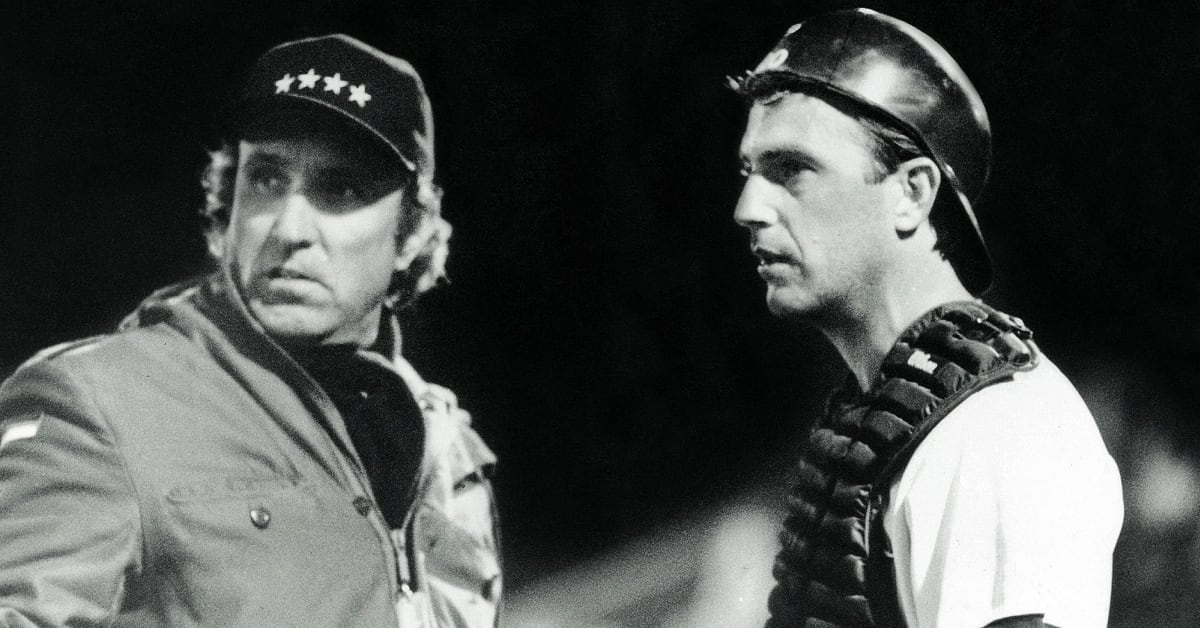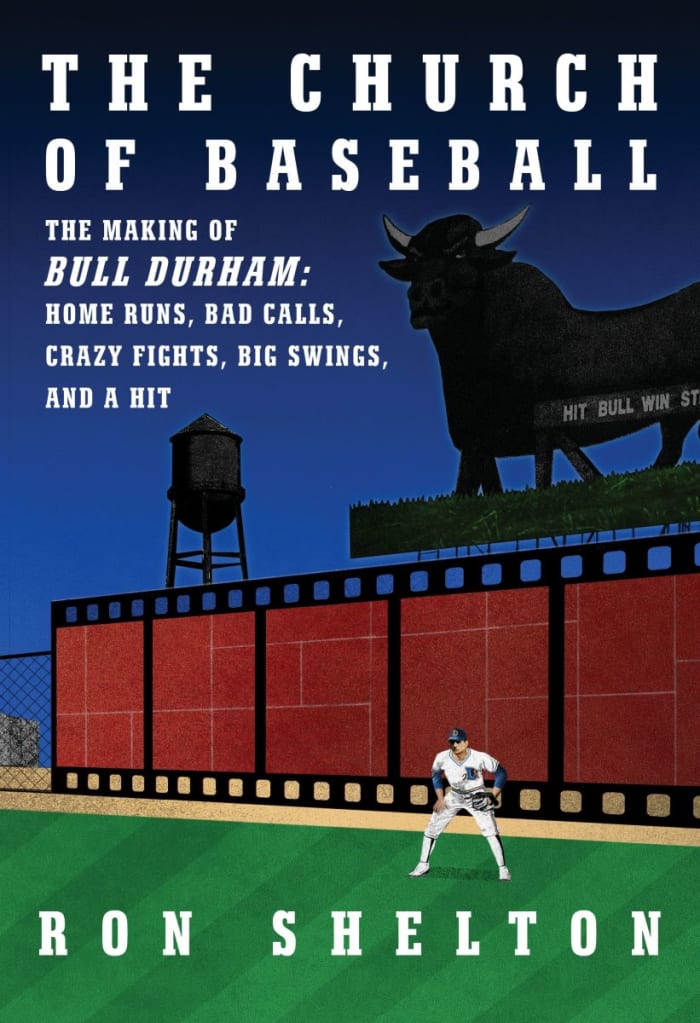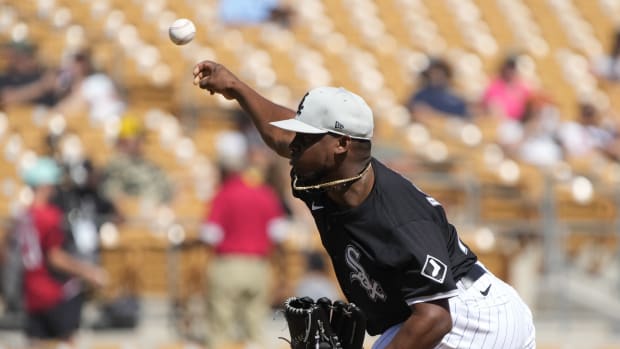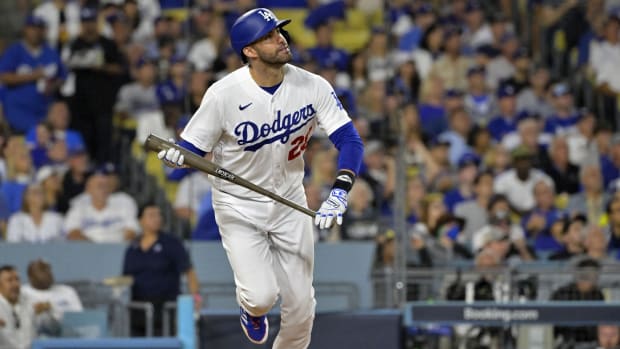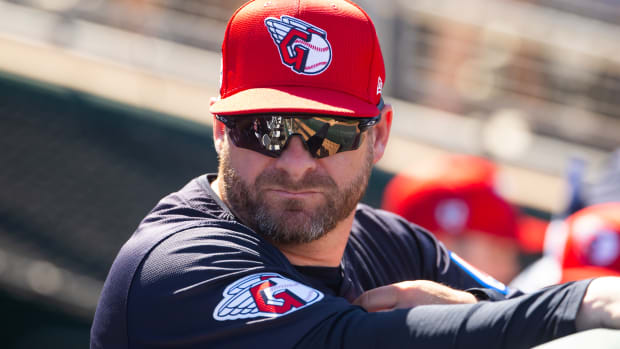The Minor League Career That Inspired ‘Bull Durham’
Excerpted from The Church of Baseball by Ron Shelton. Copyright © 2022 by Ron Shelton. Excerpted by permission of Alfred A. Knopf, a division of Penguin Random House LLC. All rights reserved. No part of this excerpt may be reproduced or reprinted without permission in writing from the publisher. Buy the book here.
I signed the minor league contract for five hundred dollars per month at 10 p.m. at LAX. It was the standard beginning wage in the late sixties, but at least there was three-dollars-a-day meal money. I was a professional baseball player and soon to learn what that meant. For starters, it meant three red-eye connecting flights on Piedmont Airlines to Bluefield, West Virginia.
I arrived at the assigned hotel in Bluefield at 7 a.m., having not slept for a second. I was greeted by men who’d lost their limbs in the coal mines and who scooted around the entrance to the West Virginian Hotel begging for anything anyone could give them. Other coal-mining lifers, withered and suffering and appearing older than their years, stood by, holding signs reading BLACK LUNG DISEASE—PLEASE HELP. The air, even at this hour, was thick and oppressive and humid in a way I’d never experienced living on the Pacific Ocean. The distance from the jewel box city of Santa Barbara to Bluefield was a lot greater than the physical miles logged.
The lobby was starting to fill with players who had filed downstairs to share cabs to the ballpark. A friendly, open-faced player came straight up to me and said, “Hi, I’m Ron Shelton. What’s your name?” I figured he knew I was arriving and it was a practical joke (ballplayers are big on practical jokes—there’s nothing better than setting a guy’s shoe on fire or nailing his clothes to the floor) but it turned out that it really was his name. The other players said I should crash, since I’d been traveling all night, but when I found out the season started the next day, I packed into a cab with them and went straight to the ballpark.
What awaited was a revelation. There were fifty players putting on ill-fitting gray wool, major league Orioles hand-me-down uniforms in ninety-six-degree humidity. Twenty wooden stalls passed for lockers, and each stall had three big sixteen-penny nails in lieu of hooks—one for each player. Three guys were crammed into each space meant for one, but what everyone immediately understood was that even though each of us had signed a contract and found his way to Bluefield in the belief he had a job, there were only twenty-five spots on the roster. Half of the young men in the room were going to be weeded out quickly. Certainly, nobody had known I was coming, and that included Joe Altobelli, a career Triple-A player who’d had a cup of coffee in the big leagues but was now about to begin a new career as our manager.
When he asked which position I played, I looked out at where guys were taking their places in the infield, and even though I’d played four years of third base in college, I noticed that there were fewer players taking ground balls at shortstop than anywhere else. So I told him I was a shortstop. Then he asked my name and I hesitated before saying, “Wayne Shelton.” I thought it would be better to have my own first name rather than be “Ron Shelton Number Two,” and my middle name was Wayne. So, less than ten hours after signing a contract on the West Coast, I’d flown all night to discover I not only didn’t have a job, I didn’t have my own name. I thought Camus would enjoy the situation but I wasn’t laughing; I was digging in for a fight.
What happened next was a combination of willfulness and great good fortune. We practiced all day and all afternoon, and as we did, other players reported to the team. As the number of players grew, the odds of making the team diminished. Everyone knew that. One guy who didn’t have to worry was the number two player drafted by the Orioles, an African American kid from Austin, Texas, named Don Baylor. He was cut like a Greek god, ran like a deer, hit with power, and played with physical grace—and he was only seventeen years old.
Early that first morning Joe announced that he was not to be called “Coach”—that was a word for high school kids and college guys. There was something off-centered and resentful about the way he said college guys. Clearly, Joe wasn’t someone with whom I’d be bouncing around the central idea of Waiting for Godot, but he was likable—even as he wielded the sword above our necks. “Call me Joe,” he said, “or Skip.” I whispered to a guy next to me—a guy fighting to play first base—“Did he really say Skip?” The aspiring first baseman knew the rules because he’d been there for two weeks and whispered back, “It’s short for skipper. It’s okay.” What he didn’t know was that this was his last day as a professional baseball player—Skip released him before dark.
Joe also announced we would be playing a Tennessee college all-star team that very night in an exhibition game to get ready to start the season the next day. There it was again, the inflection that made college sound like a prison record. By now it was obvious that the next day twenty-five guys would ride a bus to Johnson City, Tennessee, to become professional baseball players for real. The rest of us? A big roster reduction would be announced after the game. Half the guys I was warming up with would be gone. Probably including me.
At six o’clock Joe excused all the players who’d arrived in the last couple of days, saying that our “opportunity would arrive.” He told me I should go back to the hotel and get some rest with the other late arrivals, which meant I didn’t have a chance to be on the roster for the opening game. I didn’t believe that an “opportunity would arrive” to anyone who wasn’t there, so I stayed in the dugout to watch the game, still in the heavy wool cast-off Orioles uniform with a spring-training number. That number—something like 136—had been taken off and replaced by the proper professional number of 22, but the wool was discolored where the high number had been, resulting in a kind of double number on my back. I was “22” but it was easy to see with the discoloration that I was also “136.” Most of the players were branded in this manner, revealing that none of us were high draft picks. These sorts of put-downs and dismissals inspired me.
The ballpark was rickety and vintage, the kind I like, and located in the hills above town, but still drew a decent-size crowd, even for an exhibition game. The lights were of criminally low wattage and hadn’t been cleaned in years—welcome to the low minors. Somebody could get killed here. The game unfolded badly for the Baby Birds (our nickname) and Joe paced the dugout grumbling as the “f---ing college guys” were shutting us out in the top of the eighth. That’s when fortune smiled on me. Our shortstop twisted his ankle and had to come out of the game.
Fortune for one athlete is often misfortune for another, something ballplayers are acutely aware of. The moral question is always: Should I be rooting for the failure of the man ahead of me? The answer is, of course, yes. I could see that Joe was about to turn around and see who could replace our injured shortstop and I moved directly into his line of sight so he wouldn’t have time to think about it. He pointed at me and at the vacated position at shortstop, and I was in the game. The first batter hit a screaming line drive to my right. I made a diving backhand play, short-hopping the ball, and threw the guy out. It was a very flashy play and, as ballplayers know, not as hard as it looks. They’re called “reaction plays” and nobody expects you to actually pull them off, so when you do, fans stand up and cheer at the unexpected wonder of it all. A squirrelly ground ball off the end of the bat at the edge of the infield grass is much harder—and looks much easier. A bit of flash caused people to ask, “Who’s the new guy at shortstop?” He’s number 22 and 136, that’s who he is.
In the bottom of the eighth inning I got lucky again. Trailing 2–0, we got the bases loaded with two outs and I came up. I hadn’t slept in forty-eight hours and could hardly see the ball in the dim lights, around which thousands of moths fluttered. The first pitch was a fastball strike, which I took just to get adjusted. The second pitch was a curveball for strike two. Neither pitch was that impressive but they were difficult to pick out of the darkness. I figured my entire career could consist of this exhibition game against, God forbid, college guys. If this pitcher threw a nasty Koufax hook or had been holding back on some ungodly heat, a la Sudden Sam McDowell, I’d be finished. If he’d been any good he’d have thrown anything but what he did throw—cock-high, half-assed cheese with nothing on it. I tripled in three runs and we won the game. A third baseman named Ron Shelton had taken off from LAX twenty-four hours earlier; a guy named Wayne Shelton was now starting shortstop for the Bluefield Baby Birds in the Appalachian League.
I tell this story not to chronicle my modest baseball achievements—and nobody on the planet would recall the events I’ve just described—but they capture something about life in the game that every ballplayer would acknowledge. A baseball life is fragile and absurd. It’s also wondrous and thrilling. It also produces expressions like “cock-high, half-assed cheese,” which means, of course, “weak heat in the zone.”
Two weeks later, when Joe called me into his office, I knew it couldn’t be bad news because I was hitting well and playing errorless shortstop. He dragged deeply on a cigarette.
Joe: How’d ya like to play second base?
Ron: I’m liking shortstop.
Joe: The organization just signed their number one pick out of Long Beach, California, a kid named Bobby Grich, and he’s gonna be their shortstop of the future.
Ron: Naw, Skip, he’s gotta beat me out.
Joe: He’s already beat you out.
Ron: Why?
Joe: They gave him a lotta dough. How much they give you?
Ron: What about Jimmy Murrel, our second baseman? He’s playing great.
Joe (another long drag on a Camel): Let me put it to you like this, son—do you want to play second base or do you want Jimmy Murrel to play second base?
Ron: Skip, I love second base.
Thus I became a second baseman, and when I left Bluefield I reclaimed my first name. (The other Ron Shelton and I were in touch in recent years; as I write this, his son, Derek, has just become a major league manager.)
A few years later playing on a struggling team in the AA Texas League, the season seemed interminable and none of us were having particularly good years. A player in a slump will resort to desperate measures to break out of it—rubbing your bat on a chicken bone cross would qualify as a reasonable strategy, not a desperate one. Sometimes even a night off seemed like it could be the balm that turned the season around.
In Little Rock, Arkansas, a heavy thunderstorm hit while we were playing cards at three in the morning. We dreamed the storm would last all night and the next day and cause the field to be flooded and the game to be rained out. In the Texas League, there were very few days without a scheduled game; the season felt endless. We begged for days off but they never came. Out of that desperation we determined that while the tarp covering the infield had probably already been laid down by the ground crew in anticipation of this storm, that tarp could be removed. If it was, the field would flood—and we’d have a night to ourselves.
So four of us got a cab and headed to the ballpark at 4 a.m., then convinced the frightened cabbie to wait for us while we climbed the fence of the ballpark as the rain poured down. We discovered what any college guy should have known (and at least two of us in the cab were college guys): There’s a reason a ground crew has twenty men or a motor to remove a tarp from a field—it’s heavy as hell. We couldn’t budge it and had to abort our mission. We did manage to take the small tarp off the batter’s box, for reasons I can’t fathom to this day, rendering that critical part of the diamond almost unplayable.
Escaping the ballpark was harder than breaking in, however, and one of our star pitchers, whose name was Dizzy, cut his hand climbing back over the fence. The cabbie hadn’t waited for us, and we were left to walk the four miles back to the hotel as the rain grew heavier. That night I went 0 for 4—standing in the mud at home plate, unable to gain footing—and Dizzy went on the disabled list for two months. He told Joe that he had cut his finger on a can of beer.
That road trip to Little Rock provided a Road to Damascus event for me. The Wild Bunch was playing across the street from our hotel and I came out of the theater a changed young man. Sam Peckinpah’s masterpiece hit me differently than other movies had, although I wasn’t quite sure why. It was visually gorgeous but also so much more. Layers kept peeling like an onion and I wanted to know more about these characters and the story and the filmmaking. I saw The Wild Bunch all four days we were in Little Rock. Why did I care about these killers, led by William Holden, who were being chased by another gang of killers, led by Robert Ryan? That was exactly what Peckinpah wanted me to do—care about them. The story seemed to be about chaos, but it really was about order. It was violent, male, ruthless, but it was being observed by innocent women and children. Hired guns and murderers filled every frame, but it took place in a moral universe—or at least a universe searching for a center. As a story, it kept unfolding and evolving and the moral choices kept shifting, light kept being shined on them in different ways. I wanted to know more about it. About movies.
I walked away from baseball when spring training was canceled due to the first baseball strike in history, in 1972, though I still had a Triple-A contract. The fight was over pensions and arbitration, and there were rumors that the entire season would be canceled as well, and though ultimately the schedule was only shortened, the players’ union was emboldended by its success. I was married, with a three-year-old daughter, and it was time to leave. I was twenty-six. I thought I was old.
Do I have regrets? I have plenty. Baseball is a game of regrets. Once we were playing in El Paso in the Texas League at the old Dudley Dome ballpark, which balls flew out of—it was a hitter’s paradise. It was also the best road trip of the year because after the game, the five-dollar-a-day AA meal money went a magnificently long way after a short walk across the bridge into Ciudad Juárez, Mexico. I led off the game, and the catcher on the El Paso Sun Kings (an Angels farm team at the time) said as I stepped in, “Curveball. And it’s really lousy.” I didn’t believe him. Then the guy threw what was indeed the lousiest curveball I’d ever seen. It just hung up there like a full moon on a string. A big, fat piñata. I could’ve tattooed it. I didn’t swing. I should’ve believed the catcher, even if he was on the other team. This was the minors—the guys on the other team were, like you, fighting the same other. And the catcher, who seemed as dismayed at my nonresponse as I was, said, “Last time I ever give you a pitch.” I should have swung.
Just before deciding to walk away from the game, I got a call from somebody in the Orioles organization saying I’d been traded to Detroit and that I was going to be assigned to their AAA team, the Toledo Mud Hens. I debated hard whether to continue—the Tigers weren’t loaded like the Orioles; you never know what might happen. Except maybe you do. But I regret not playing another year. I could’ve been a Mud Hen.
Wait till next year, we were taught. You went 0 for 4 last night—tonight you’ll go 4 for 4. Except you won’t. Bart Giamatti said it’s a game designed to break your heart.
More Baseball:
• Judge vs, Ohtani MVP Race Is on a Historic Track
• Kyle Farnsworth’s Foray Into Bodybuilding
• The Science Behind the Rise of the Slider






























